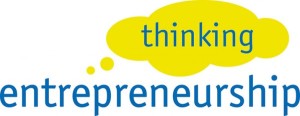[Part 8 of the Counselor Training Blog Series provides you with valuable information to help you develop into a stronger admissions professional.]
We recently shared with you that the most successful admissions teams are those who take an entrepreneurial, business building approach to their jobs. We have observed this in all types of colleges; large and small, private and public, from coast to coast.
 Successful business builders share a number of behaviors that you can integrate into your role as an admissions counselor today for immediate results. Specifically, adding these two traits can set you on a course for greater success.
Successful business builders share a number of behaviors that you can integrate into your role as an admissions counselor today for immediate results. Specifically, adding these two traits can set you on a course for greater success.
Goal Setting
The most accomplished admissions teams set goals and develop the strategies and action items that will help to achieve those goals. Defining goals is actually the easiest part of the process. Creating the specific strategies and daily actions that are required to achieve the goals is far more challenging.
And, what we have found to be most effective is this: identify five to 10 key strategies and approach those with dogged determination. Top admissions professionals find that the team loses focus when the list becomes too long. You may have 100 great tactical ideas, but honing that list to the top 10, or less, is more likely to yield the results you want. It is much better to do 10 things really well than to do 20 things marginally well.
Accountability
Setting goals and developing a well-thought-out plan to achieve them is the first important step in creating your entrepreneurial team, but if you do not hold yourself and your team members accountable, it is meaningless.
The single biggest difference we see when we compare highly successful recruiting teams with those who are not as successful is in issues of accountability. There is an old saying that “people respect what you inspect.” It is a simple premise that reminds us that holding each team member accountable for his or her promises and commitments not only increases overall performance but also illustrates the importance and impact of each person’s individual role in the process.
There are many ways to establish accountability within your team, but most importantly, the system you adopt should be motivating and positive. Once the standard is set, we generally notice that the high-achievers hold themselves accountable. They know that every commitment and promise must be kept, especially to oneself.
Top-performing admissions teams clearly define their goals and metrics and they measure their performance. Regularly. Doing so enables them to see what is working and what is not so that they can make positive changes for greater success.
Continue the conversation on Twitter @LongmireCo. For more information about Longmire and Company’s Interactive Counselor Training Program, click here.
[In the next installment of the Counselor Training Series we will explore how counselors often get in their own way when trying to have conversations with prospective students and parents.] Subscribe to Versions of Conversion today so you don’t miss any of this highly-valuable information.]
Karen Full is a highly-respected higher education professional who has held positions in admissions and enrollment management at several institutions in the  Midwest and Florida. With her vast experience working with large and small, public and private institutions, Karen brings a valuable perspective to her role as an Enrollment Strategist at Longmire and Company. You can reach Karen at 913/492.1265 x.711 or via email at kfull@longmire-co.com. Follow Karen on Twitter @KarenAFull.
Midwest and Florida. With her vast experience working with large and small, public and private institutions, Karen brings a valuable perspective to her role as an Enrollment Strategist at Longmire and Company. You can reach Karen at 913/492.1265 x.711 or via email at kfull@longmire-co.com. Follow Karen on Twitter @KarenAFull.
 entrepreneurs. Regardless of their position, or their territory, or the pool of students they are responsible for, they approach their jobs as though they are building a business. And, if you have a mother, father, brother, sister, or friend who has built a business, you know what it takes to be successful.
entrepreneurs. Regardless of their position, or their territory, or the pool of students they are responsible for, they approach their jobs as though they are building a business. And, if you have a mother, father, brother, sister, or friend who has built a business, you know what it takes to be successful.
 Rick Montgomery is as an Enrollment Strategist at Longmire and Company. With over 20 years in higher education marketing, he brings an innovative approach to helping colleges and universities meet their enrollment goals.
Rick Montgomery is as an Enrollment Strategist at Longmire and Company. With over 20 years in higher education marketing, he brings an innovative approach to helping colleges and universities meet their enrollment goals.

